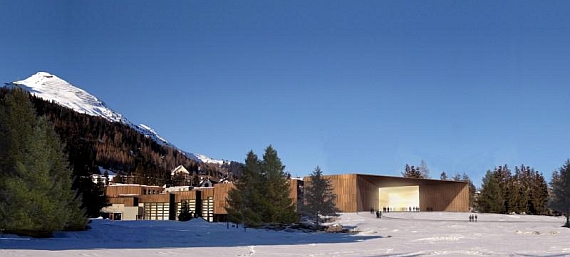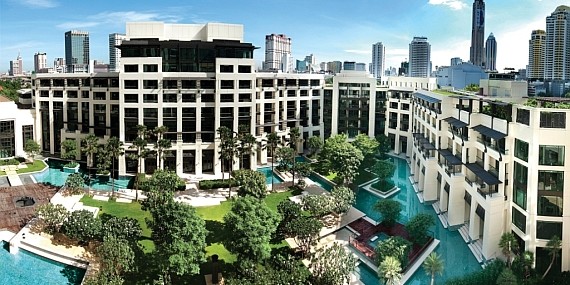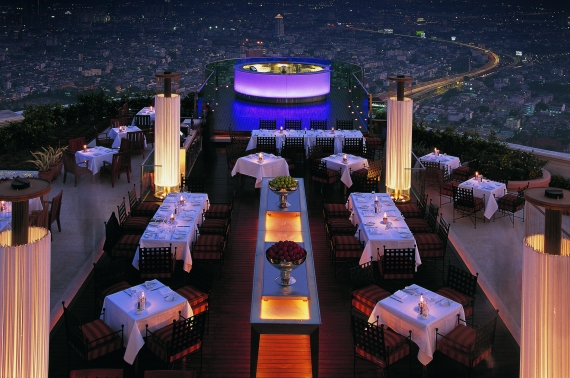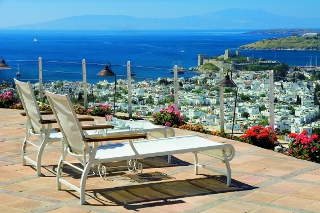
News & Stories
Berlin. The outlook is exceptionally good for ITB Berlin as final preparations are under way for an event which between 9 and 13 March will be taking place for the 45th time. Overall, Messe Berlin expects around 11,000 exhibiting companies and organizations from more than 180 countries to be present in the 26 halls on the Berlin Exhibition Grounds. The focus is on Poland, the partner country of ITB Berlin.
Frankfurt. Female executives have much more power and potential than they realise. This is clarified with the newest survey whose results will also flow into the "Women's Leadership Forum" at the IMEX in May.
Davos. Annual buzz in Davos: this week, from January 26 to 30, politicians, managers and royal guests – all in all 2,500 top-class participants – gather at the World Economic Forum for the 41st time in the Alpine city in Graubuenden. There are 35 heads of government, 80 ministers and further top-notch politicians from more than 100 countries, surrounded by their entourage and security personnel, about 1,000 company heads, the global economic elite, and hordes of journalists from all over the world. As every year around this time, Davos’ hotels and boarding houses are completely booked out – although accommodation has been significantly extended lately. And it will be extended even further, as institutional and private investors follow suit with new hotels.
Duesseldorf. The new name Business Travel & Meetings Show and the new date in spring are now combined with a new concept, too. The leading German trade fair for business travels enlarges its concept by including the aspects of meetings.
Bangkok. The current tumult and deaths in Tunisia also brings to mind a memory of the chaos in Thailand in 2010. The effects there will still be felt in 2011, even if the New Year could bring about a tourist comeback in Thailand. This would also generate strengthened profits for the international hotel industry. However, in spite of an improved capacity utilisation, the room rates remain near their lowest and the country is still a long way from being politically stable. Considerable risks for hotels and investments remain persistent. hospitalityInside author, Peter Hinze, was recently in Thailand and spoke known hoteliers with the top five luxury hotels in the city about the past and the New Year.
Bangkok. Within three years, Lebua has become a hotel brand that has managed to win over a good many guests from internationally renowned luxury hotel chains. This success originates from Deepak Ohri, CEO of Lebua, who has an extraordinary good knowledge of human nature, as well as from unique F&B service that has made the hotel so popular.
Berlin. Best practice examples from the private hotel industry, a look at the international spa market and a round table event filled with renowned speakers will be the highlights of the "ITB Specialist Forum Wellness 2011" on 10 March 2011.
Istanbul. "Turkey is the European tiger," said Michael Widmann, PKF hotelexperts, last week in Vienna. The British consultancy confirms the country's potential based on its current hotel market analysis. In Istanbul, the next hotel investment conference should reveal new details.
Hanover. TUI Deutschland’s most recent growth strategy includes the introduction of new hotel brands. The two first brands are planned to start off in summer 2012. The aqi brand, which started with one hotel two years ago, is still waiting for new offspring.
Frankfurt. "Exclusive" and "target group-related" - these will be the magic words used by German tour operators when dealing with hotels in the coming year. Major tour operators are increasingly pressing for exclusive agreements with their respective authorized hoteliers. Be it TUI, Airtours, Thomas Cook or Jahn Reisen, they all have one thing in common: they market services which, according to them, are exclusive to their guests in corresponding hotels. Besides, TUI launched two further hotel concepts. Despite or rather because of the exclusivity approach: It will be rather difficult to keep track of all those exclusive offers in the future. Will the label exclusive still live up to its meaning?




